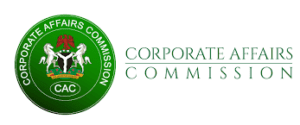


Irony of fuel price hike and Refinery turnaround maintenance
Since the turnaround maintenance of the Port Harcourt Refinery began in 2021, there has been a continuous stream of promises regarding the project’s completion and the subsequent restart of the facility’s production. Despite the change in administrations and numerous ministers, the situation remains unchanged.
Former President Muhammadu Buhari initiated the project and handed it over to President Bola Ahmed Tinubu. Various ministers have succeeded each other, including Chief Timipre Sylva and Heineken Lokpobiri, yet progress seems stalled. It remains unclear why Nigeria’s model of presidential oversight in the petroleum sector, in a country with over 150 million people and numerous technocrats, continues to falter.
The presidency, already burdened with numerous challenges, also carries the additional responsibility of overseeing the petroleum sector. This dual role contributes to the ongoing issues with fuel scarcity. The recent fuel price hike, amidst already harsh economic conditions, exacerbates the problem.
The Federal Government took several months to settle on a N70,000 minimum wage, which has yet to be implemented in 99 percent of the 36 states and the FCT. The N30,000 minimum wage, approved previously, remains largely unimplemented. This raises concerns about whether the new minimum wage will be enforced.
The agreement between Labour and the Federal Government on the N70,000 minimum wage was based on the premise that fuel prices would remain stable. However, with the new minimum wage not yet in place, fuel prices have surged above N1,000 per litre. The Nigeria Labour Congress (NLC) and the Trade Union Congress (TUC) have expressed their dissatisfaction, condemning the price hike as insensitive and a betrayal of trust.
The delay in the Dangote Refinery’s rollout of petroleum products is attributed to bureaucratic hurdles within the NNPCL and the Nigerian government. Issues such as crude oil shortages and currency transaction complications persist.
With fuel being critical to Nigeria’s economic stability, commuters face increased transport costs, and other sectors are similarly affected. As students prepare to return to school, the hope is for an improvement in the situation.
The NNPCL has repeatedly promised the Port Harcourt Refinery’s reopening, but these promises have not materialised. The Independent Petroleum Marketers Association of Nigeria (IPMAN) also supports the NNPCL’s stance, but no tangible results have been seen.
Rumours suggest that foreign refineries supplying Nigeria might be Nigerian-owned, although this remains unconfirmed. The recurring question is why there is such difficulty in restarting the country’s four refineries, particularly Port Harcourt.
Millions of Naira and dollars have been spent on the Port Harcourt Refinery’s maintenance without success. Repairing the refineries should not be an insurmountable task, provided there is effective leadership and political will. Nigerians excel abroad, indicating that systemic issues are at play within the country.
Comparatively, Ghana managed significant political and economic improvements under Jerry Rawlings. Nigeria could benefit from examining such success stories.
Despite the nation’s vast resources, poverty persists, highlighting a need for change. To move forward, Nigeria requires purposeful leadership with a clear vision. The era of “it is my turn” politics should end, as it fails to hold leaders accountable. Effective leadership must be characterised by sincerity, fairness, and the absence of corruption. Leaders should practise what they preach, avoiding hypocrisy.
Nigerians are weary of unfulfilled promises, especially concerning the Port Harcourt Refinery and the other refineries. It is time for concrete action and a shift away from empty rhetoric.


